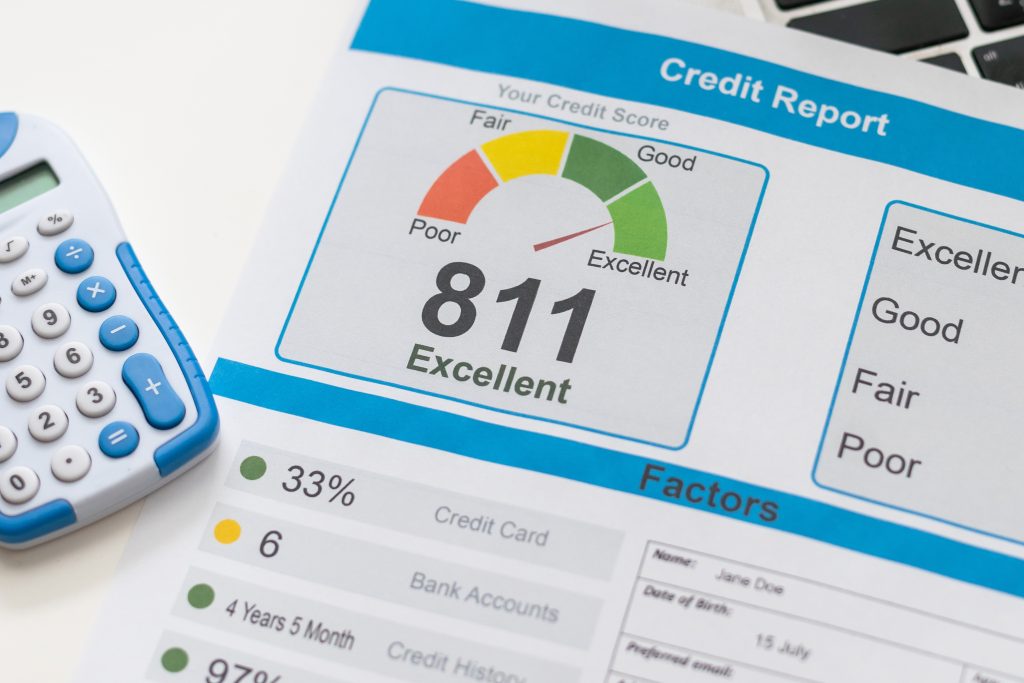Are you striving to achieve and maintain a high credit score? Having a good credit score is crucial for financial success, but it can be challenging to know how to achieve and maintain it consistently.
Your credit score plays a significant role in your financial life. It determines your ability to secure loans, get favorable interest rates, and even affects your chances of renting an apartment or getting a job. With a high credit score, you gain access to better financial opportunities and peace of mind.
If you’re looking to achieve and maintain a 775 credit score, there are several key steps you need to take. It’s not just about paying your bills on time; it involves understanding credit utilization, managing debt responsibly, and being vigilant about your credit report. In this article, we will explore the strategies and habits that can help you achieve and maintain a 775 credit score, ensuring a strong financial foundation for your future.
What is a Credit Score?
A credit score is a numerical representation of an individual’s creditworthiness and is used by lenders to determine the likelihood of a borrower repaying their debts. It takes into account factors such as payment history, credit utilization, length of credit history, types of credit used, and new credit accounts. A high credit score indicates that a person is more likely to be responsible with credit, while a low credit score suggests the opposite. Understanding the factors that go into determining a credit score and how to maintain a good credit score is essential for anyone who wants to access credit in the form of loans, credit cards, or mortgages.

The Value of a 775 Credit Score
A 775 credit score is considered excellent and opens up a wide range of financial opportunities. With this score, you can qualify for top-tier financial products such as low-interest rate loans, premium credit cards with excellent perks, and competitive mortgage rates. Lenders see you as a low-risk borrower, allowing you to enjoy better terms and perks such as higher credit limits and lower insurance premiums.
Having a 775 credit score provides you with a plethora of borrowing options and financial opportunities. You can easily obtain loans for major purchases like a home or car, and have access to the best rewards and benefits offered by credit card companies. Furthermore, this credit score can also result in lower interest rates and more favorable terms for any type of loan or credit you may need.
The advantages and opportunities that come with a 775 credit score are countless. To further improve your credit score, continue to make on-time payments, keep credit card balances low, and limit new credit applications. Monitoring your credit report regularly will also help you identify and correct any errors that could be negatively impacting your score.
Steps To Achieve a 775 Credit Score
Achieving a credit score of 775 is a significant financial milestone that can open doors to better interest rates, loan approvals, and overall financial stability. By following a few key steps, you can work towards achieving and maintaining this excellent credit score.
1. Check Your Credit Reports Regularly
It is important to regularly monitor your credit reports to ensure accuracy and to detect any potential issues. You can do this by checking your reports from one of the three credit rating agencies – Equifax, Experian, and TransUnion – every 4 months. This allows you to stay informed about your credit status throughout the year and catch any discrepancies early on.
An easy way to access your credit reports for free is through AnnualCreditReport.com, which provides one free report per agency per year. When reviewing your reports, make sure to verify the accuracy of the information listed. If you find any incorrect or outdated information, it’s crucial to dispute it with the credit agency to have it corrected.
Regularly monitoring your credit reports can help you maintain a good credit score and protect yourself from identity theft or fraudulent activity. By staying proactive and keeping an eye on your credit, you can take the necessary steps to address any issues and ensure that your credit reports remain accurate.
2. Pay Bills on Time
Paying bills on time is crucial for maintaining a positive credit score. Your payment history is the most significant factor in determining your credit score, making up about 35% of the total score. Late payments can have a significant negative impact on your credit score, making it harder to secure loans or credit in the future. To avoid late payments, it’s essential to stay organized and keep track of due dates. One effective way to do this is by using a spreadsheet to list all your bills and their due dates.
Another helpful method is enrolling in autopay, which automatically deducts your bill payments from your account on the due date. It’s important to take all bills seriously, regardless of their amount, and ensure they are paid on time to maintain a positive credit score. By making timely payments, you can demonstrate responsible financial behavior and avoid negative impacts on your credit score.
3. Know Your Credit Utilization Rate
To calculate your credit utilization rate, simply divide the amount of credit you’re currently using by the amount of credit available to you. For example, if you have a credit card with a limit of $10,000 and you’ve used $3,000, your credit utilization rate would be 30%. To keep a good credit score, it’s recommended to keep your credit utilization rate below 30%.
There are a few ways you can lower your credit utilization rate. One way is to keep your credit card balances low by paying off as much of your balance as possible each month. Another way is to ask for a credit limit increase, which can provide more available credit and lower your utilization rate.
It’s important to keep your credit utilization rate low because it is a key factor in maintaining a good credit score. Lenders and credit card companies use this rate to determine how well you are managing your credit and how much of a risk you are as a borrower. By knowing and actively managing your credit utilization rate, you can work towards maintaining a healthy credit score and financial status.
4. Build Up Different Types of Credit Accounts
There are various types of credit accounts that can help individuals establish or build credit. Secured credit cards are a good option for those with limited credit history or poor credit scores. These cards require a cash deposit as collateral and can help improve credit if used responsibly.
Student credit cards are designed for college students and are easier to obtain than traditional cards. By using a student credit card responsibly, individuals can start building a positive credit history.
Authorized user status allows individuals to piggyback on someone else’s credit account. This can be helpful for young adults or those with limited credit history as it can contribute to establishing credit.
Co-signing for a loan with someone who has a strong credit history can help individuals with poor or limited credit get approved for a loan. However, it’s essential to understand that the co-signer will also be responsible for the loan.
Additionally, utility and rent payments can be reported to credit bureaus and contribute to a positive credit history. By consistently paying bills on time, individuals can demonstrate creditworthiness and improve their credit score.
Overall, these various types of credit accounts and payment methods can help individuals establish and build their credit.
5. Monitor Your Payment History and Cycle
Monitoring your payment history and cycle is crucial for maintaining a good credit score. One way to do this is by regularly checking your credit reports for any inaccuracies or outdated information. You can request a free credit report from each of the three major credit reporting agencies – Experian, Equifax, and TransUnion – once a year. Reviewing these reports allows you to track your payment history and ensure that all the information is up to date and accurate.
Another way to monitor your payment history is to keep track of your monthly debt payments and ensure they are made on time. Late payments can have a negative impact on your credit score, so it’s important to stay on top of your due dates and make your payments promptly. If you do miss a due date, consider reaching out to your creditor to see if the late payment can be removed. Some creditors may be willing to waive the late fee and not report the late payment to the credit bureaus if it’s an isolated incident.
By monitoring your payment history and cycle, you can take proactive steps to maintain a good credit score and financial health.
6. Understand the Different Scoring Models Used by Lenders
When it comes to assessing an individual’s creditworthiness, lenders rely on various scoring models, with FICO Score and VantageScore being the most commonly used. The FICO Score, developed by the Fair Isaac Corporation, is widely used in the lending industry and is based on information from the three major credit bureaus: Equifax, Experian, and TransUnion. These bureaus offer their own FICO Scores, and lenders may use the median score of all three to make their lending decisions.
In addition to the standard FICO Score, there are industry-specific scores within the FICO model, such as the FICO Auto Score and FICO Bankcard Score, which are tailored to specific types of lending. On the other hand, VantageScore is a newer scoring model that was jointly developed by the three major credit bureaus. The range of scores for both FICO and VantageScore models is 300 to 850, with a higher score indicating lower credit risk.
While both FICO Score and VantageScore use similar criteria to assess creditworthiness, there are some differences in their scoring algorithms, leading to potential variations in the scores. It’s important for consumers to be aware of these different scoring models and how they can impact their credit standing.
Tips for Maintaining a 775 Credit Score
Maintaining a 775 credit score is an impressive feat that can offer many financial benefits. It signifies responsible credit management and opens up opportunities for obtaining low interest rates, favorable loan terms, and access to top-tier credit products. However, achieving and maintaining this high credit score requires diligence and careful management.
Monitor Your Balance to Limit Credit Card Debt
Monitoring your credit card balance is crucial to preventing excessive debt and maintaining a healthy credit score. It is recommended to stay within 20% of your credit limit to avoid exceeding the ideal credit utilization ratio.
To achieve this, utilize online or mobile banking to regularly track your spending and check your credit card balance. This will allow you to make adjustments as needed to ensure you are staying within the recommended credit utilization ratio.
By monitoring your credit card balance, you can proactively manage your spending and avoid accumulating high levels of debt. This will ultimately help to protect your credit score and financial well-being.
Stay on top of your credit card balance and credit limit to avoid exceeding the ideal credit utilization ratio. Utilize online banking tools to monitor your spending and make necessary adjustments to keep your credit card balance within a healthy range. Doing so will help you maintain good financial health and protect your credit score in the long run.
Make Sure You Have a Good Mix of Credits in Your Portfolio
Currently, my credit portfolio includes a variety of different credit types. I have two credit cards which are managed responsibly by consistently making on-time payments and keeping balances relatively low. Additionally, I have an installment loan for a car, which I have been paying off on schedule. Lastly, I also have a real estate loan for my mortgage, which has been managed responsibly by making timely payments each month.
Having this diverse mix of credit demonstrates responsible financial management and shows that I can handle different types of credit simultaneously. This diversity also adds depth to my credit profile and demonstrates to potential lenders that I can handle various types of credit responsibly.
The impact of having a diverse credit mix can significantly impact lenders’ decisions on loan offers and interest rates. Lenders view a diverse portfolio positively as it showcases the ability to manage different types of credit effectively. This can result in more favorable loan offers and lower interest rates as it reduces the perceived risk for the lender. Overall, having a good mix of credit can benefit the borrowing process and impact the terms and rates offered by lenders.
Keep an Eye On Any Changes in Your Credit Score Range
It’s important to regularly monitor your credit score and credit reports to keep an eye on any changes in your credit score range. By doing so, you can identify any fluctuations in your credit score and investigate the cause. Whether it’s due to a late payment, hard inquiry, or other negative factor, being aware of these changes can help you take the necessary steps to improve your credit.
Reviewing your credit reports will also help you spot any errors or outdated information that could be impacting your credit score. By identifying and addressing these issues, you can work towards improving your credit score range over time.
By consistently monitoring your credit score and credit reports, you can stay informed about any changes and take proactive measures to maintain or improve your credit standing. It’s essential to stay vigilant and regularly check your credit reports to ensure that you have an accurate understanding of your credit score range.
Avoid Opening Too Many New Accounts at Once
Opening too many new accounts at once can have a detrimental effect on your credit score. Each time you apply for new credit, a hard inquiry is pulled on your credit report. Hard inquiries can lower your credit score, especially if you have multiple inquiries within a short period. This is because it signals to lenders that you may be taking on a lot of new debt, which can be viewed as risky behavior.
It’s important to exercise patience when building credit. Instead of opening numerous new accounts at once, it’s better to space out your credit applications over time. This allows your credit score to remain stable and demonstrates responsible borrowing behavior.
It’s crucial to understand the difference between soft and hard inquiries. Soft inquiries, such as when a potential employer checks your credit or when you check your own credit, do not impact your credit score. On the other hand, hard inquiries from applying for new credit can have a negative effect.
Refrain From Closing Old Accounts Without Careful Consideration
Closing old credit accounts can have a potential impact on your credit score. It can decrease the average age of your accounts, which is a factor in determining your credit score. Additionally, closing an old account can also impact your credit utilization ratio, which is the amount of credit you are using compared to the total amount available to you. If you close an old account with a high credit limit, your overall utilization ratio may increase, which can negatively affect your credit score.
However, there may be compelling reasons for closing an old account, such as high fees or poor service. Before making the decision to close an old account, it is important to consider factors such as your overall financial strategy and the impact on your credit score. Key factors to consider include any potential increase in credit utilization, the potential impact on your average age of accounts, and any other alternative options available. It is important to weigh the pros and cons carefully to ensure that closing an old account aligns with your overall financial strategy and goals.

Conclusion
In conclusion, achieving and maintaining a 775 credit score is possible. It requires diligence in monitoring your credit report and making sound financial choices. Paying bills on time, keeping balances low, limiting new accounts, taking advantage of credit-building tools and services, and staying aware of other potential factors that can affect your score are all important steps to take if you want to reach this lofty goal. With these tips in mind, you can be on your way to a higher credit score and the financial freedom that comes with it.

